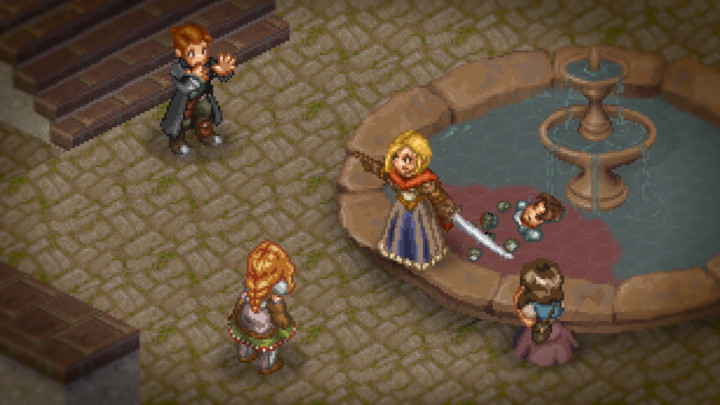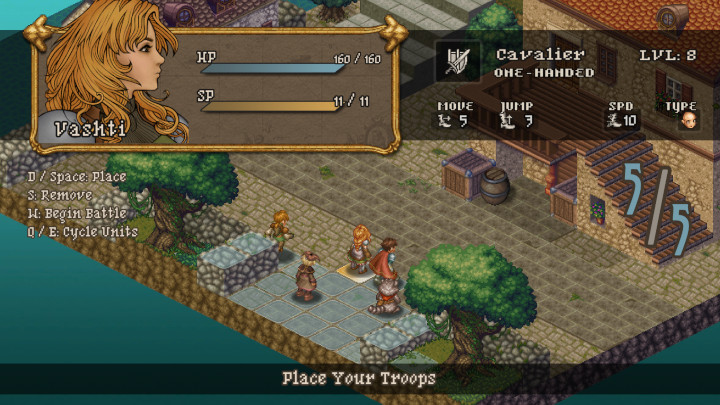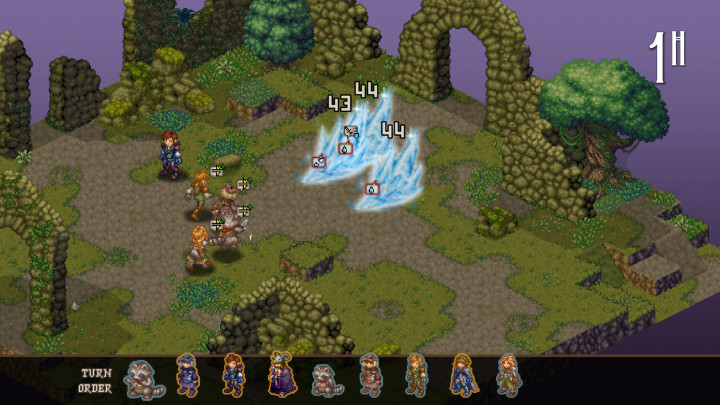
I’m a sucker for a good TRPG, and Arcadian Atlas is a damn fine one.
Now, I’m about to say something that’s sure to raise some eyebrows, but it must be said: Arcadian Atlas reminds me a bit of Final Fantasy Tactics. Sure, for many people who casually play video games, Final Fantasy Tactics is the single point of reference for any grid-based TRPG (tactical roleplaying game). When some folks say something reminds them of FFT, all they mean is that they’re playing a TRPG. So I get that this phrase comes with some skepticism. But I do dabble in the TRPG genre quite frequently — as a huge fan of the Disgaea series — and I can say with confidence that there’s a whole range of options that are nothing like the crowned jewel that is 1997’s Final Fantasy Tactics.
But Arcadian Atlas? It definitely tips its hat to FFT, and I’m certainly not the first person to point this out.

The most obvious reference is the visual style, which features pixelated troops that wouldn’t feel out of place if they were plopped into one of FFT‘s isometric maps. And those maps feel like they could be FFT maps, similar in size, shape, and art direction. Heck, even the font choices are strikingly similar.
But what really does it for me is the story. Arcadian Atlas features a world at war, with multiple factions that all have their own thoughts and motives. You primarily play as a pair of lovers — Vashti and Desmond — who ended up on opposite sides of this war, experiencing the story from multiple angles so you can empathize with different sides of the conflict. You’re supposed to feel conflicted, and Arcadian Atlas does a great job of casting doubt on both sides. While you might feel great about clearing a map and earning some XP for your troops, you still find yourself questioning whether or not you’re fighting for the right cause.
And this is emphasized by moments of choice that allow you to steer the story a bit. You might have to choose between executing a character or letting them live, for example, and then watch the rest of the game play out to see the consequences of that action. I love this.
Now, as a big Disgaea fan, I will say that combat does feel a little bit shallow. Arcadian Atlas lacks the intensely deep systems of a Disgaea game, and it comes without much of the grind as well. For a lot of folks, this will actually be a relief, but for hardcore systems nerds, it could be a dealbreaker. I personally love a good RPG grind, so being without one leaves me feeling a bit empty inside. This is a game you’ll spend 10 to 20 hours with, rather than something you could lose 100+ hours of your life to.

Now, that’s not to say that Arcadian Atlas is completely without side activities, because it does feature a contracts system that allows you to pick up odd jobs at taverns and fight optional battles for loot and XP. There are also hidden battles that occasionally pop up during your game that might flesh out some of the side characters a bit. These are easy to miss, but stumbling upon one of them can be a thrill.
I do feel like there are plenty of secrets left to be discovered in the game, and I’m considering multiple playthroughs so I can see the results of different choice-making.
For anyone who simply wants to get lost in a medieval fantasy story about war and heartbreak and human conflict, Arcadian Atlas ticks all of the right boxes. It’s a bit light on content and it lacks the grind of some of the meatier options in the TRPG genre, but that’s not necessarily a bad thing.
Disclaimer: I was given a code for Arcadian Atlas for Steam, but the opinions expressed in this article are my own.